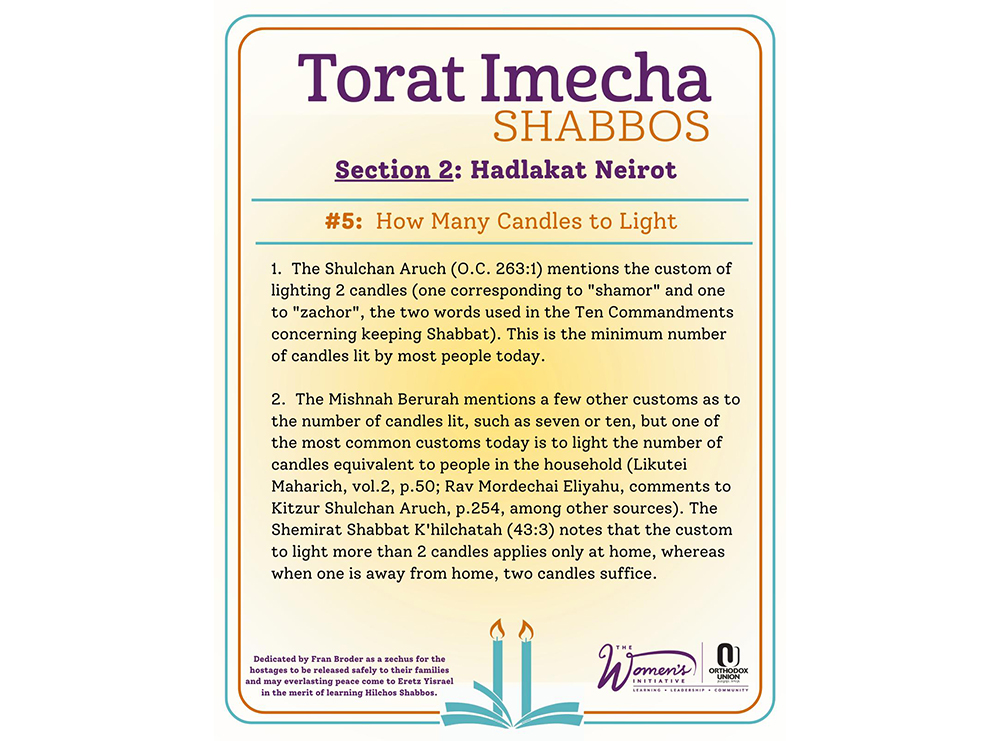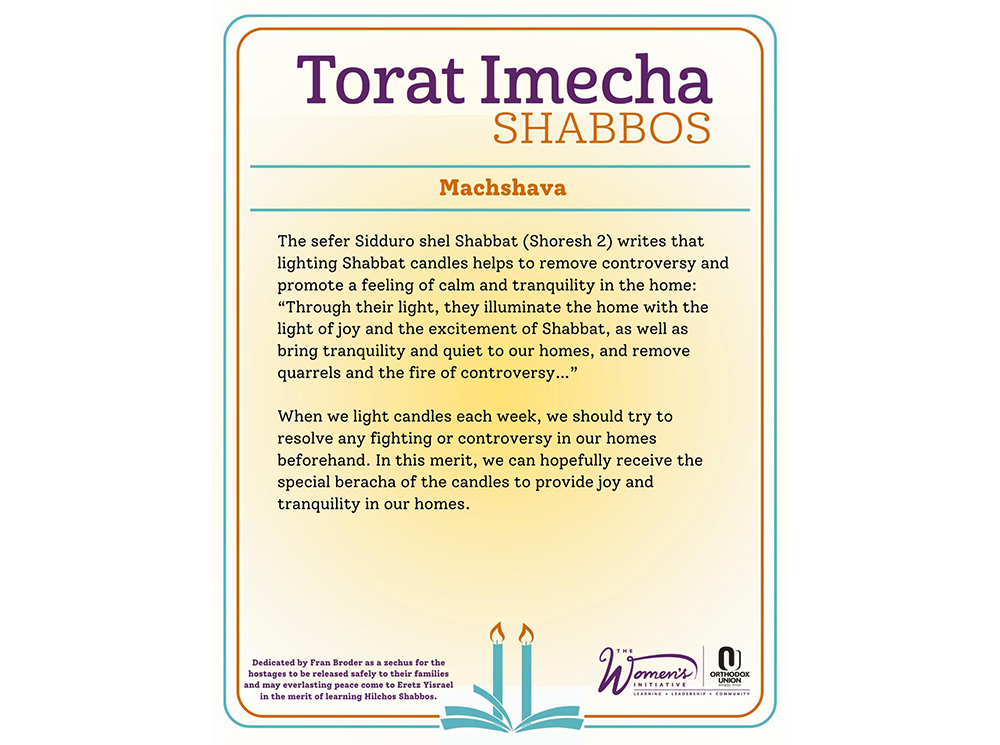
The OU Women’s Initiative—an initiative dedicated to women’s leadership, training and high-level daily learning—has launched its Torat Imecha Halacha program, in which short, daily halacha summaries are sent out via WhatsApp and email. The author of the daily halacha summaries is Rabbi Eli Ozarowski, editor of the Tzurba M’Rabanan halacha series and editor of the Semichat Chaver program. Rabbi Ozarowski and Rebbetzin Dr. Adina Shmidman—director of the OU Women’s Initiative—spoke to the Jewish Link about their involvement in the project.
Rebbetzin Shmidman grew up in New York and studied psychology and Jewish education throughout her educational career. While working on her doctorate in Educational Psychology, she moved to Birmingham, Alabama with her husband so they could be the Rabbi and Rebbetzin there. After nine years, the Shmidmans moved to Bala Cynwyd, Pennsylvania, where Rebbetzin Shmidman taught AP Psychology and Shmuel, but after a few years, she began to look for a new opportunity career-wise. The OU was looking to create a department to support women in the realms of community engagement, development and education. In November 2017, Rebbetzin Shmidman became the director of the OU Women’s Initiative, and all of the unique aspects of her journey led to her “walking into the OU with experience that impacted the program … The connections, love and support that people feel knowing that there’s a department looking out for their leadership development and religious needs is incredible.”
The OU Women’s Initiative has been running Torat Imecha learning programs for years, but it took a long time to get a halacha program started. Rebbetzin Shmidman explained, “Particularly in the area of halacha, you’re inviting people to explore their own practice and entertain the idea of change and that’s serious. One has to be very thoughtful and careful because people take us seriously and trust us.”
Rabbi Ozarowski grew up on Long Island and received semicha from YU RIETS. He now lives in Mitzpe Yericho with his wife and children, where he runs a WhatsApp group dedicated to sharing daily halachot and is frequently consulted by members of the community with halachic questions. Rabbi Ozarowski’s wife, Zemira, serves as the director of Women’s Programming at OU Israel and works closely with Rebbetzin Shmidman.

In March, Rebbetzin Shmidman and her husband came to Israel for their son’s army swearing-in ceremony. In the most “divinely choreographed” way, Rabbi Ozarowski bumped into Rebbetzin Shmidman for the first time in 28 years—Rebbetzin Shmidman taught Rabbi Ozarowski AP Psychology in high school—at a simcha celebration in Mitzpe Yericho. He mentioned that he writes halacha curricula and it struck Rebbetzin Shmidman that he could be the perfect person to develop the halachic content for the Torat Imecha Halacha initiative. Rebbetzin Shmidman feels like “this is really the only reason we were brought to Israel,” as her son’s tekes (ceremony) was actually canceled!
In thinking about the goals of this specific project, Rabbi Ozarowski mentioned the importance of learning hilchos Shabbos. The Tur writes that at Maariv on weekdays, we say, “shomer et amo Yisrael laad—Hashem protects the nation of Israel forever,” but on Friday night, we only speak about peace; since the energy of Shabbos itself brings us protection. Rabbi Yitzchak Zilberstein writes that improving one’s level of Shabbos observance and learning about its halachos is a crucial component of increasing one’s spiritual strength—especially in the challenging times the Jewish people are currently facing. Rabbi Ozarowski also mentioned that Shabbos is a day that affects the rest of the week. The mystical sefarim often write about how the more one observes Shabbos, the more blessings one will have during the week.
Rebbetzin Shmidman explained that there are multiple dimensions to the project’s aims. On a broad level, the valuing of halachic practice is a message the OU Women’s Initiative wants to highlight. “We are given the gift with an instruction manual, so let’s care for the gift we’ve been given in the proper way.” Beyond that, it’s uplifting to teach people that “we are growing people and we’re welcoming change. Here are the tools to do it and we’ll do it as a community.”
Rabbi Ozarowski finds this project fascinating because the principles of halacha were given 2000 years ago—finding ways to make them relevant to an ever-changing world is enrapturing, especially in the realm of Shabbos. So far, the WhatsApp and email blasts have received immensely positive feedback, with participants mentioning their appreciation for easily digestible Torah on a consistent basis. Members also appreciate being able to think about Shabbos for a few moments during the chaos of the week. The project currently has about 2,000 subscribers despite very little advertising.
Rabbi Ozarowski believes that this program is an amazing opportunity for women. “Our generation has been a generation where halacha is 1) much more interesting than it used to be, and 2) much more accessible than it used to be. You had to be much more learned to understand it well until recently.” He hopes this project will enable “thousands of women across the world to have a love and appreciation and understanding of halacha.” Rebbetzin Shmidman loves that this project “lands for different people in different ways” and is excited about how much it’s grown already and to see where it goes from here.
For more information and to join the WhatsApp or email blasts, visit https://ouwomen.org/halacha/.
Eliana Birman is a digital intern for The Jewish Link. She is beginning her studies at Barnard College in the fall and lives in Teaneck.









